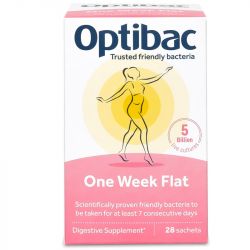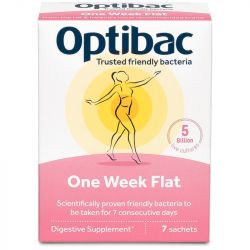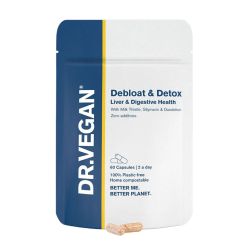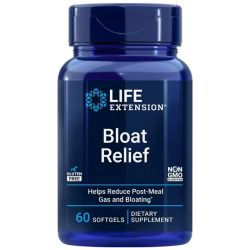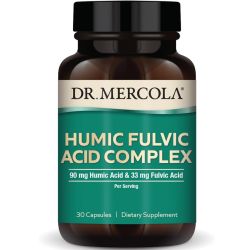IBS Bloating
Discover effective IBS bloating supplements designed to relieve trapped wind and discomfort caused by digestive issues. Whether it's managing symptoms associated with celiac disease or general bloating, these targeted solutions can help restore balance and improve gut health.
 ProVen Probiotics Acidophilus & Bifidus Plus Intestinal & Digestive Support Sachets 14Special Price £13.73 Regular Price £15.25
ProVen Probiotics Acidophilus & Bifidus Plus Intestinal & Digestive Support Sachets 14Special Price £13.73 Regular Price £15.25 Proven Probiotics Acidophilus & Bifidus with Digestive Enzymes Capsules 30Special Price £17.09 Regular Price £18.99
Proven Probiotics Acidophilus & Bifidus with Digestive Enzymes Capsules 30Special Price £17.09 Regular Price £18.99
All you need to know about IBS Bloating
How to relieve IBS pain and bloating?
To effectively relieve IBS pain and bloating, consider incorporating supplements specifically designed to support gut health, such as probiotics and digestive enzymes. Probiotics work by introducing beneficial bacteria into the gut, which can help restore balance to the microbiome, improve digestion, and reduce symptoms of gas and bloating. Digestive enzymes can aid in breaking down food more efficiently, preventing the fermentation that often leads to gas buildup. It's also important to maintain a well-balanced diet, manage stress levels, and identify trigger foods that may exacerbate IBS symptoms for comprehensive management.
What does IBS bloating look like?
IBS bloating typically manifests as a visibly distended or swollen abdomen, often described as feeling tight or firm to the touch. This bloating can vary in intensity, ranging from mild discomfort to severe pain, often accompanied by symptoms such as excessive gas, cramping, and changes in bowel habits. People with IBS may also experience fluctuations in bloating throughout the day, with symptoms worsening after meals, particularly if they consume foods high in fermentable carbohydrates. It's important to recognize these signs, as they can help in identifying triggers and managing symptoms effectively.
What causes IBS bloating?
IBS bloating can be triggered by various factors, including food intolerances, gut dysbiosis, and abnormal gastrointestinal motility. Certain foods, especially those high in fermentable carbohydrates (FODMAPs), can lead to excessive gas production, resulting in trapped wind and bloating. Stress and anxiety can also exacerbate IBS symptoms, as they influence gut function and may lead to increased sensitivity in the digestive tract.
How long does IBS bloating typically last?
The duration of IBS bloating varies from person to person, often lasting from a few hours to several days. Bloating can occur after meals or during periods of stress, and its persistence may depend on individual triggers and dietary choices. Regularly taking supplements designed for gut health can help manage symptoms and reduce the frequency and severity of bloating episodes over time. If bloating lasts longer than a few days or is accompanied by severe pain, it’s essential to consult a healthcare professional for further evaluation.

